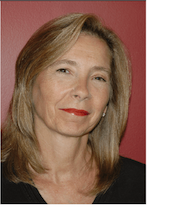My wife and I have an ongoing yet congenial difference of opinion about perfection, in that she expects it and I don’t.
In my defense, I believe perfection is attainable only in nature, and that humans can strive for perfection, but never truly achieve it. I learned that two ways: the first during a tour of a 1920’s Sears catalog house renovation where I noticed a slight flaw in a bathroom floor’s original mosaic tile pattern and was told it was made on purpose because craftsmen of that era considered that “only God is perfect.” Later, I watched a documentary about legendary NFL coach Bill Walsh, who constantly drilled his players to execute to perfection, knowing full well they’d never achieve it—an approach that earned three Super Bowl wins in the 1980s.
RELATED
- How Do You Measure the Customer Experience?
- Mastering Customer Feedback—More Important Than Ever
- Homebuying: What Do New Homes Have in Common With a Pair of Shoes?
Even so, I pick my spots. This magazine, for one—a commitment shared by the entire staff here. Inaccuracy, even a single typo or a missed fact, undermines our credibility as a reliable source of information. By contrast, I’m less conscientious about raking leaves.
To be sure, even an attempt at perfection is difficult; it takes a shared philosophy and focused dedication by everyone involved … especially as others (consciously or not) undermine that effort.
Perfection is not the goal; striving for perfection is. If you set lofty yet still reasonable expectations across your organization and hold everyone accountable, then the chances of getting closer to perfect increase exponentially.
For example, your warranty service team may strive for 100% customer satisfaction, but I’ll bet you can come up with five things right now that derail that goal beyond the control of that team.
Still, perfection is not the goal; striving for perfection is. If you set lofty yet still reasonable expectations (“no typos” for us, “response to warranty requests within 24 hours” for you) across your organization, and hold everyone in your realm accountable, then the chances of getting closer to perfect increase exponentially. That was Walsh’s philosophy, and one that only a few other teams of his era or any other were able to sustain. Which is why they won.
Your organization could be one of those teams, winning consistently against other builders that are satisfied with “good enough” and unwilling or unable to strive for better, much less perfection. And, as competition for buyers intensifies, doing your absolute best to make the entire homebuying experience “perfect” for them is likely to be the difference between closing a sale and losing one.

It is with sincere gratitude and a heavy heart that we say goodbye to executive editor Denise Dersin, who is retiring at the end of this year. A true professional, valued colleague and mentor, and dear friend, Denise leaves an indelible mark on us and the housing industry she served as an editorial leader for 20 years. To say that she’ll be missed across the residential construction landscape is a vast understatement. Please join us in wishing her well!













